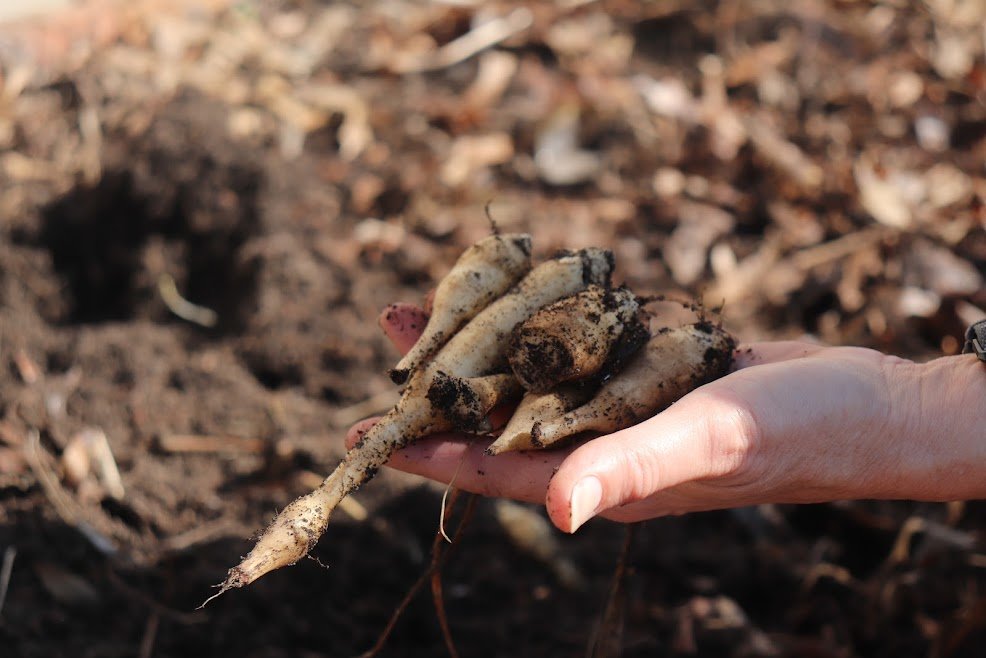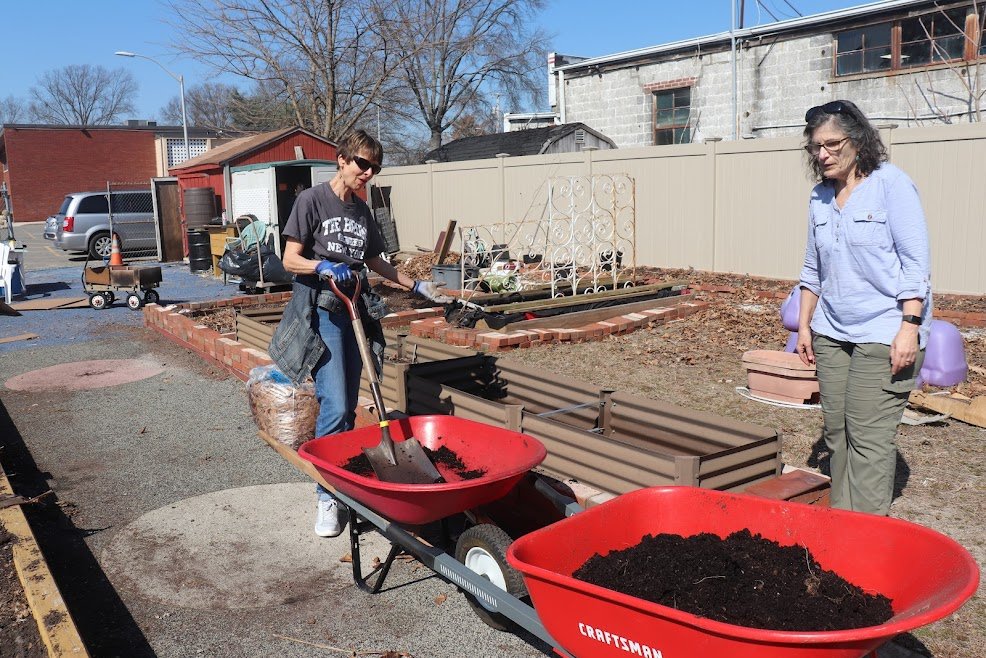Sunday, April 28, 2024
Wantagh temple garden is giving back to those in need
Birds chirped, and the smell of dirt and garlic filled the warm spring air as about a dozen volunteers worked on a community-service garden at Temple B’nai Torah, in Wantagh, on March 15. They chatted as they pushed wheelbarrows full of nutrient-rich dirt for an upcoming harvest.
Once an unused playground, the volunteer-run vegetable garden was created by Rona Kauffman, of East Meadow, and Susan Salem, of Bellmore. In 2020, at the start of the coronavirus pandemic, the pair asked the temple to turn the playground into a garden to help feed local families struggling with food insecurity, Kauffman said, which was spreading across Long Island.
“The [food] pantries were overwhelmed, and it was a good opportunity to start,” Kauffman said. “It’s all about creating a welcoming space to encourage people to learn.” And at the time, it gave volunteers a way to help those in need while social distancing.
Kauffman had worked with Salem at a vegetable garden outside St. Francis Episcopal Church in Bellmore for over a year, and she invited Salem to “work her magic” on the former playground, she said. “It was a godsend during Covid,” Salem said, “just being in the company of other humans.”
Volunteer started by emptying the playground sandboxes, under which they discovered a layer of asphalt, which indicated that the playground had been built above a parking lot. Unable to remove it, they laid down a layer of shredded leaves before adding soil to promote vegetable growth, and created a gardening infrastructure to hold sections of soil using landscaping fabric and cardboard.
Kauffman’s husband, Bob, joined local Boy Scout troops to create what his wife described as “cardboard lasagna” that could then be filled with soil. “It’s satisfying to do something with your hands and benefit other people,” Bob said. “It’s really a labor of love.”
The garden was constructed entirely of materials that volunteers have gathered through donations or built with donated supplies, making it a zero-waste enterprise. Everything that is grown in it is donated to community members and organizations in need.
Volunteers plant and harvest vegetables and herbs including potatoes, peas, squash, heirloom tomatoes, peppers, lettuce, dill, chives, garlic, kale and sunchoke, a root vegetable known as Jerusalem artichoke. Given the crops’ disparate growing periods, they are harvested at various times of the year.
The next harvest is in May, and another will follow in July. Last year they harvested as late as November.
Registered as an official monarch waystation, the garden will include a bed of flowers such as milkweed to attract monarch butterflies. Flowers will be planted between vegetables to attract other pollinators, such as birds and bees.
Some of last week’s volunteers were focused on preparing the vegetable beds, adding new soil, while others were replanting chives to make room for different crops. New volunteers are expected to join them, to plant seeds, by the end of the month.
Salem said she started gardening when she was a chef, and wanted to grow her own vegetables. She has shown the workers the finer points of planting and harvesting, and has encouraged them to refurbish donated planters and flower beds for future crops.
Autumn Tankleff, of East Meadow, volunteered after hearing about the project through the Temple. Kneeling by one of the vegetable beds, she dug out chives and separated them. “It’s good to feed the poor and needy and do something good for someone else,” Tankleff said. “I also love being able to save the planet and help be organic.”
The garden has an area where foods typically found on a traditional Seder plate will be grown. And one corner of the plot has been left fallow, because Kauffman decided to take part in the tradition of Shmita, or sabbatical year, the seventh year of the agricultural cycle observed in Judaism. Shmita began on Sept. 7, 2021.
Many of the volunteers who were laboring last week had helped with the garden since it was created. Some volunteers are former member of Temple Emanu-El, in East Meadow, which merged with Temple B’nai Torah four years ago. Anne Paley, of East Meadow, was one of them. “It’s like the Garden of Eden,” Paley beamed. “I feel positive and energized, and I get to see my friends.”
HELP SUPPORT LOCAL JOURNALISM
The worldwide pandemic has threatened many of the businesses you rely on every day, but don’t let it take away your source for local news. Now more than ever, we need your help to ensure nothing but the best in hyperlocal community journalism comes straight to you. Consider supporting the Herald with a small donation. It can be a one-time, or a monthly contribution, to help ensure we’re here through this crisis. To donate or for more information, click here.
Sponsored content
Other items that may interest you









